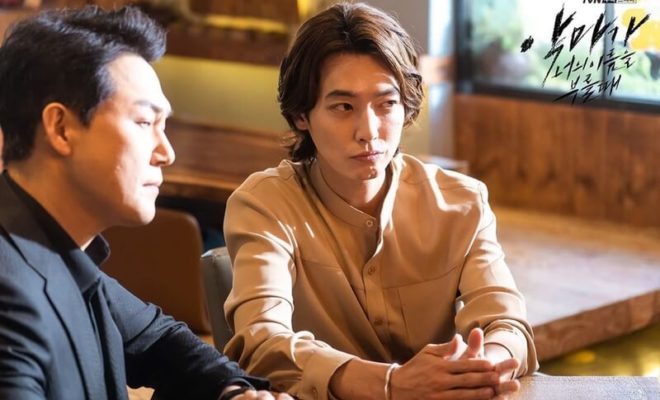
When the Devil Calls Your Name is a title that rings with presumptions and expectations of an all-supernatural genre. With an impressive cast, the TvN drama explored heavy themes of philosophy and theology through music with a comedic twist.
The writers, Noh Hye-young and Go Nae-ri, took inspiration from Johanne Wolfgang von Goethe’s Faust and adapted the concept of a demon betting with God that he can lure humans away from righteousness into following their own greed. From this concept, the drama builds over the duration of the series the devil proving the deities’ precious humans are evil and greedy in their truest form.
The drama is adapted to follow Seo Dong-cheon, played by Jung Kyung-ho, who lived a life of hardship and pain in pursuit of his dream of being recognised as a musician. Robbed of his right to 15 minutes of fame he struggled for years and died alone out on the street. He is given a second chance after death to live his dreams through an alter ego, Ha Rib. For 10 years he lives a life of fame, fortune and youth in exchange for his soul at the end of the contract.
Picking up after 10 years, we are immediately plunged straight into the cat mouse chase between the devil, Ryu and Ha Rib. The first meeting is filled with witty retorts that set a light-hearted and entertaining beginning to a relationship that feels familiar to a previous drama together–Life on Mars.
It’s not long before another challenge to Ha Rib’s character appeared in the form of Kim I-Gyeong, played by Lee Seol. A young girl who unfairly spends time in jail after an incident that led her alcoholic abusive father to remain in a vegetative state. Trying to live a clean life after she got out- she is met with bad fortune at every corner. The drama unfolds to reveal that the core reason for her misfortune stems from her past with Ha Rib.
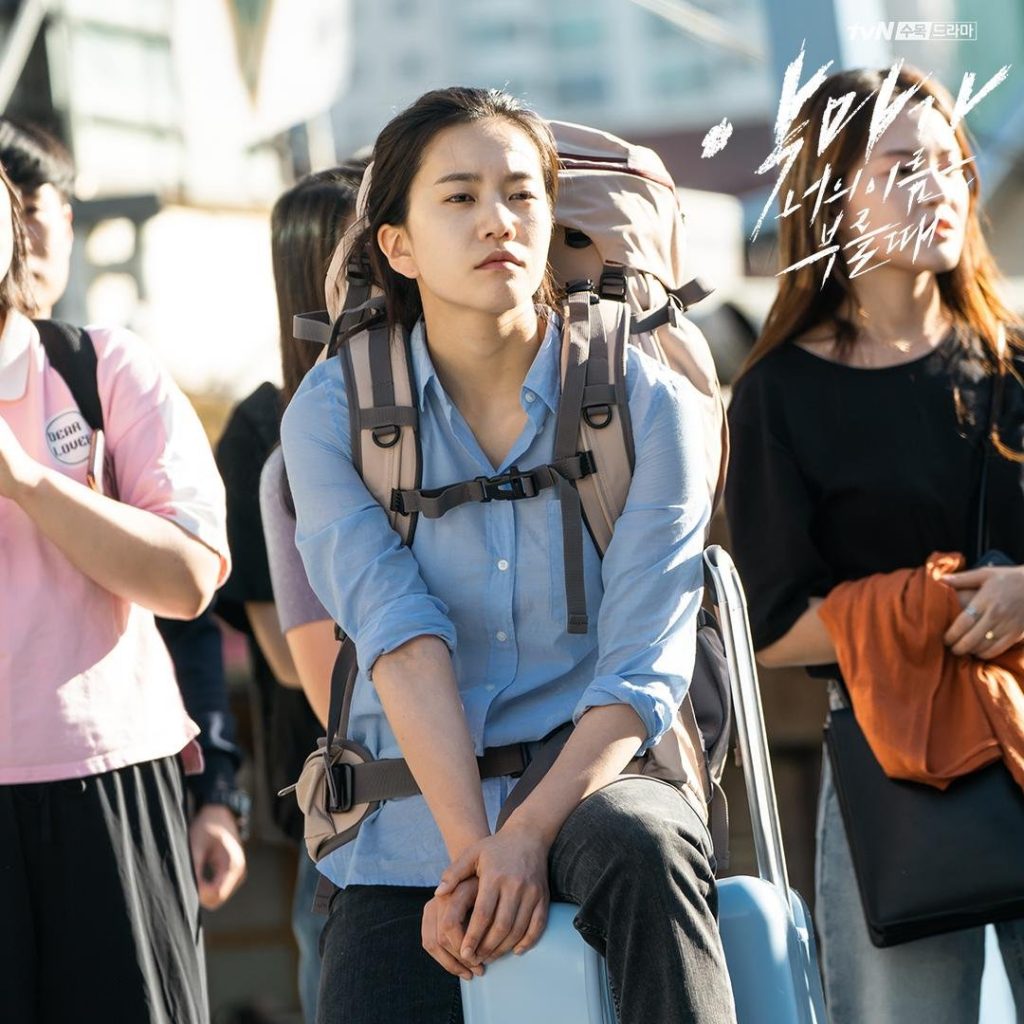
I-Gyeong’s character is stemmed in tragedy and misfortune drawing the audience to empathise with her humble character. It was, however, difficult at times to stay on her side seeing how much they played on the “downtrodden” card. Although it becomes clear later on why the writers choose to keep her personality humble and unassuming, it was often infuriating, as the issues seemed easily resolvable.
What is enjoyable about this drama is the development of plot, narrative and characters. The initial impressions of the drama remain, but themes progressively develop into deeper narratives. It starts with questioning the fine line between good and evil, deity and humanity posing binaries that may seem obvious to begin with but eventually mould into a big mess.
The drama is melodramatic with comedic themes in a supernatural setting. Remarkably, the writers balance these themes naturally to compliment each other and portray reality in a form of progression from one to the other.
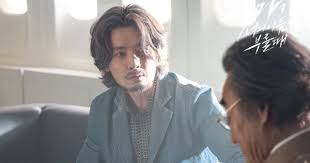
The first theme the audience is faced with is human nature. The first couple of episodes set Ha Rib’s character as a compilation of all that human nature can be at its lowest form: desperate, greedy, self-absorbed and in denial. Without conscience and driven by fear of his past, Ha Rib is convinced that his own existence is essential and that all revolves around him and how his own suffering has no competition.
As he strives to elongate his life and contract with the devil, the writers focus the attention on Ha Rib as the representation of human desires, needs and unmet potential. Slathered in desperation, a human can think up and do worse than what a devil would. His relentless pursuit of Gyeong’s first-grade soul is a prime example of how the writers shift the status quo of evil and shine a light of reality onto the human form.
In all of this, Ryu is presented, as almost like a businessman selling dreams in exchange for their souls, but that too is never enough. Using different scenarios of granting wishes and seeing the after effect, Ryu continues to entertain himself and prove the deities wrong.
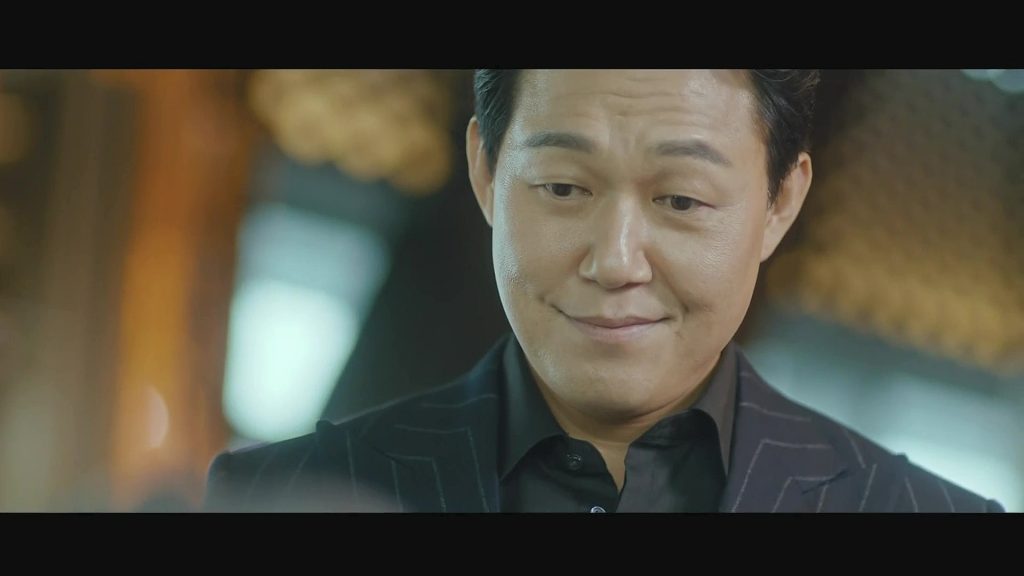
Park Sung-woong, without a doubt, was made for the role of the charismatic devil, cashing out in human souls dressed in fitted suits that highlight his broad physique. In certain moments he is wise and patient, angel-like in his mercy. Other times he is, as we’ve always known him manipulative, dark and otherworldly. It’s interesting to see which moments the writers showcase his true form outside of his vessel. It’s not often on display as he is patient and willing to learn about the human ways as though its personal project of his, almost like rats in a lab to experiment with. Though his name precedes him, the writers have shown his character more in the light of an angel in revolt. Conscious and reflexive on the human condition he portrays a different interpretation of the devil. The ability to make humans spew their inner dark thoughts at a snap of his finger is a charming feature added to the show. Not only is it helpful to the progression of the narrative- it serves well when it comes to justifying his point: Humans are worse than the devil himself.
One thing When the Devil Calls Your Name does very well is sharing only enough to carry you through the drama. The past is referred to in snippets to unfold what is needed and to keep the audience intrigued. Upon discovery of the identity of I-Gyeong and the way in which her life has turned out- the mood of the drama shifts and it begins to signal to a form of conscience still left in Ha Rib, who swore off tears in this lifetime.
As the drama unfolds the focus shifts from egotism to include a reflexive sentiment. Listening to Ha Rib’s mental train of thought putting the pieces together to finally see the bigger picture he always missed in his own pursuits. He understands that the devil plays on free will steering it to his desires like a true deity.
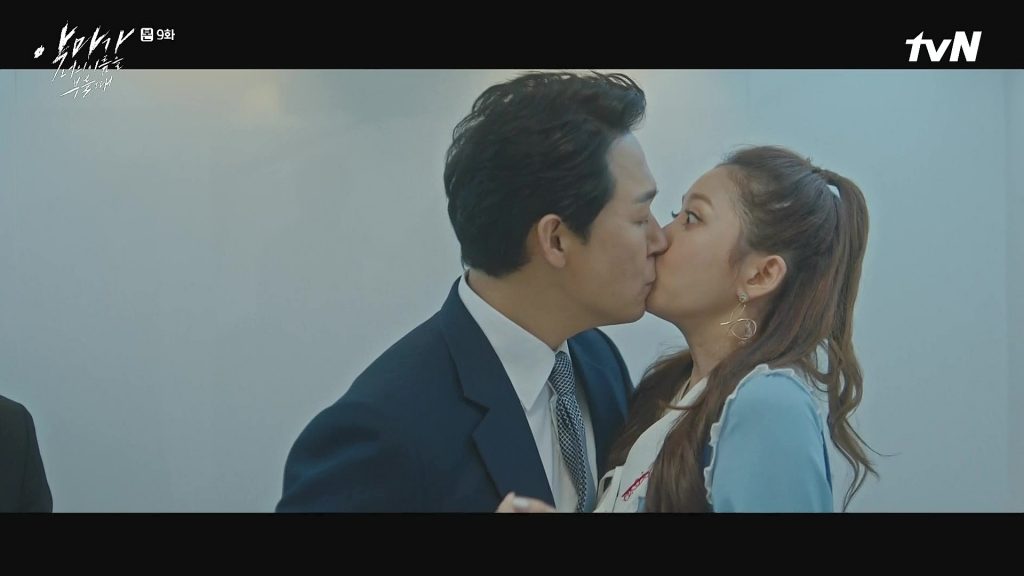
Throughout the drama, the writers connect the characters to the audience through dictation of their thoughts. In a diary entry form, the audience is kept in the loop of deepest thoughts and discoveries along the way. It’s utilised well in showing their human side against their often-conflicting actions making the characters much more relatable.
For Ryu, it served as a journaling daily analysis of human nature. Often philosophical, the monologues added depth and gave varied side to the characters. His confusion of human reasoning and emotions gave the drama many golden moments that made the audience reflect and laugh out loud at the same time. In scenes where Ryu attempts to rationalise emotions kissing random characters looking for a reason as to why his heartbeats faster for Ji Seo-young and not for others, he truly represents his alien side to humans.

As events unveil the truth behind Ryu’s existence on earth and the games the deities play using human lives, the drama experiences another progression in the narrative. Held at a crossroad between saving Lucca (Song Kang) or I-Gyeong, Ha Rib’s conscience takes the wheel and jolts him back and forth between a father’s love and sacrifice and human conscience. Seeking forgiveness and redemption for his past choices becomes the centre of focus.
The drama takes a turning point towards growth and focuses its roots in the concept of fatherhood. Using this concept –in all its representations–sacrifice becomes the prominent theme. From the introduction of I-Gyeong’s family situation and her father’s condition to Ha Rib’s sacrifices to save his son, Lucca. Sacrifices in the name of love for family and blood is recurring and used as justification for choices for both deities and humans.
Although sacrifice is a constant theme throughout the drama, chief Kang’s sub-story of father’s sacrifice for mere hours with his dead baby girl is most heart throbbing of all. Yoon Kyung-ho’s performance as Chief Kang, though short, was pronounced, effective and more significant than the relationship between Ryu and his own father or Ha Rib and Lucca. His moment of happiness spent with her and heartache thereafter truly illustrates a bond that is indescribable in words.
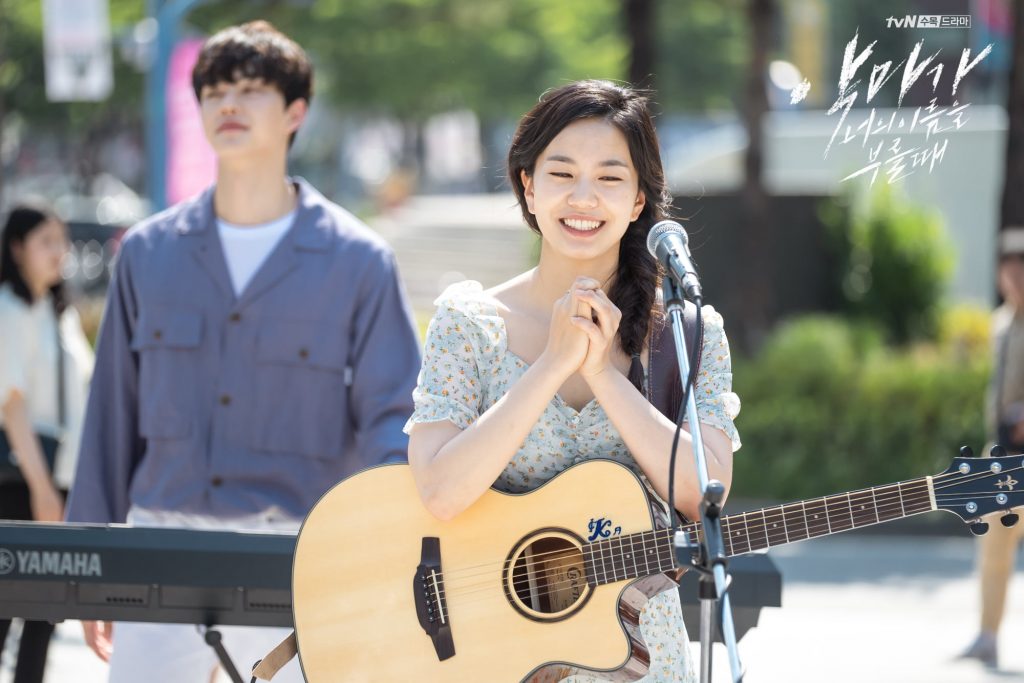
There were many elements to applaud about the drama and one of them was the way in which the writers feed background stories to the audience in doses rather than big reveals. For instance, the way in which I-Gyeong’s story was carried through to finding the real cause of her father’s state mid-series. The time in between allowed justification for the character’s choices, which in turns creates complexity to them.
Another element that made the drama fun is the relationship between Ryu and Ha Rib. The yo-yoing between friend and foe made the drama pleasantly unpredictable. In times of friendship, their bickering and banter eased the tension and seriousness of the situation they’re in. In a conflict of interest, they were inventive and moving in their performance.
There aren’t too many faults to draw from the drama, but it must be said that it fell short in how it used Lucca’s character and didn’t push it further than a prop to Ha Rib’s narrative. His deaths and resurrections and inability to let go of Ha Rib made him a character that stopped at the potential impact, but no more than a prop used to motivate Ha Rib or I-Gyeong.
Even when he did develop feelings for I-Gyeong, it was sidetracked by Ha Rib and his hunt for her first-grade soul.
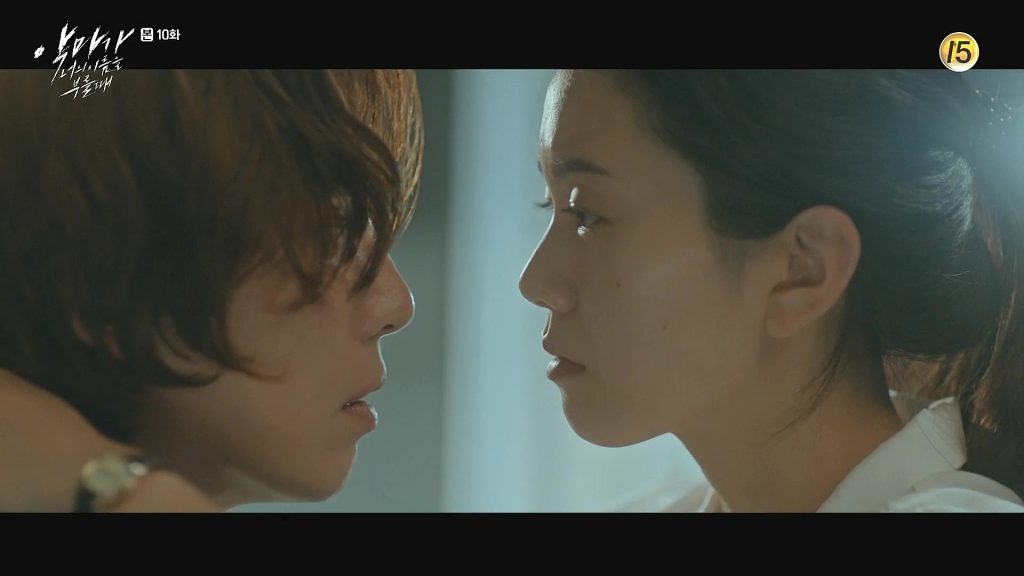
Speaking of romance, it was interesting how the direction of Ha Rib and I-Gyeong’s relationship hinted towards romance but fizzled out so quickly. At times it was vague whether their relationship would develop towards a romantic direction or take a turn to something like enemies due to the nature of their past. Once again, Lucca served as a potential second lead but still remained vague and secondary to the other on-going narratives. Though it was flagged suddenly in the storyline, the romance between the main characters would have made for a confusing turn from the main drive for these characters: the music.
Giving Ryu and Seo-young a romantic twist may have seemed like a fitting idea too, but it still felt clunky at times and forced towards the end. It was confusing at times to distinguish whether she was in love with Ryu or still had feelings for Mo Tae-kang. Nonetheless, it was well utilised in developing Ryu’s character as an angel finally beginning to understand human emotions and rational.
Although the drama tells the story of the love of music and desperation to pursue it, the music acted as another vehicle for expressing their emotions when words cannot. Essential to the plot, but it did not overshadow the themes at play.
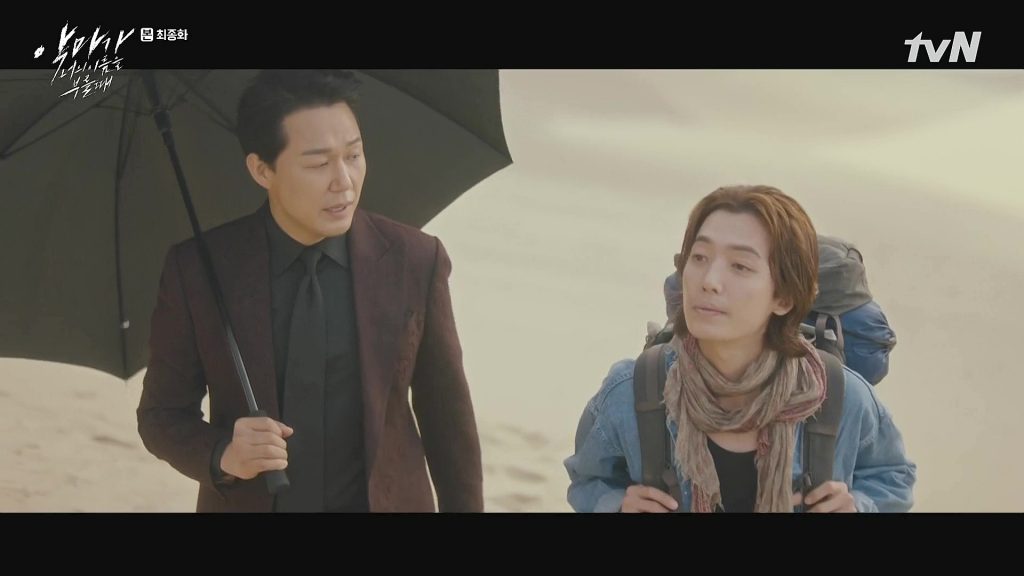
All in all When the Devil Calls Your Name is an all-rounder in serving its audience contrast of emotions. In a single episode, you can expect to laugh cry and curse at the screen. Another underrated drama that was not given enough recognition seeing the rate of viewership. Perhaps Jung Kyung-ho’s voice in the music will make up for it.
(Images via TvN, Video via Viki)


